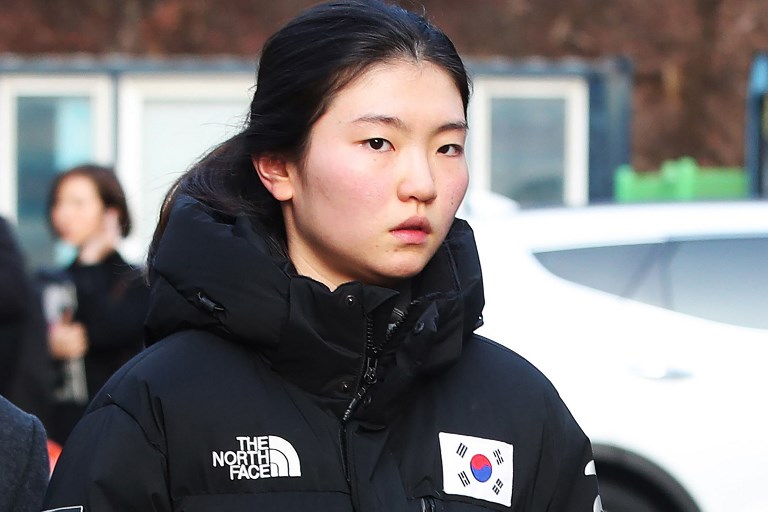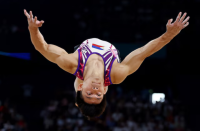
SEOUL, South Korea (AFP) — Double Olympic gold medallist Shim Suk-hee broke down in tears as she told a South Korean court of the years of abuse she suffered at the hands of her coach.
Aged 21, the short-track skater has four Olympic medals to her name, including relay golds at both Sochi 2014 and on home ice at this year’s Pyeongchang Games.
But she told a court that her coach Cho Jae-beom had been beating her since she was seven — on one occasion breaking her fingers — leaving her “deeply traumatized”.
His violence “kept escalating” as she grew older, she said at the hearing in Suwon, south of Seoul.
“He frequently beat me and verbally abused me since I was seven… at one point beating me with an ice hockey stick and breaking my fingers,” she said.
Another time he hurled metal nuts at her, ripping open her forehead.
Just weeks ahead of the Pyeongchang Olympics, “he kicked and punched me so hard, especially on my head, that I even thought ‘I could die here’,” she said, breaking down.
South Korea is a regional sporting power and is regularly in the top 10 medal table places at the summer and winter Olympics. It is the only Asian country other than Japan to have hosted both Games.
But in an already intensely competitive society, winning is everything in its sports community — where coaches hold immense sway over athletes’ careers, and physical and verbal abuse are known to be rife. Those who speak out are liable to be sidelined and castigated as “traitors”.
Cho admitted to police that he beat Shim and three other athletes at their training camp to “improve their performance” and was given 10 months in prison for assault at his trial in October.
But he appealed against the sentence.
Shim said she had been “brainwashed” by Cho who threatened to end her sporting career if she spoke out, saying she had been “gripped by extreme fear and anxiety” about Cho all her life.
“I’m getting psychological treatment for depression, anxiety, sleep disorder and post-traumatic stress disorder,” she said.
The pre-Pyeongchang beating left her concussed and she blamed it for affecting her performance at the Games, where she failed to match her medal haul from Sochi, which included silver in the 1500m and bronze in the 1000m.
She did not testify at Cho’s original trial for fear of “having to confront him”, she told the hearing on Monday, “but I mustered up courage because I thought I needed to speak the truth”.
The South Korean women’s curling team — another star of this year’s Winter Games, whose unexpected run to the final and a silver medal earned them global headlines — have accused their coaches of verbal abuse and exploitation.
The team — nicknamed “Garlic Girls” after the local specialty of their rural hometown — said the managers had banned them from talking to other athletes, did not share how donations and prize money were being spent and censored all gifts and letters from fans.
© Agence France-Presse






